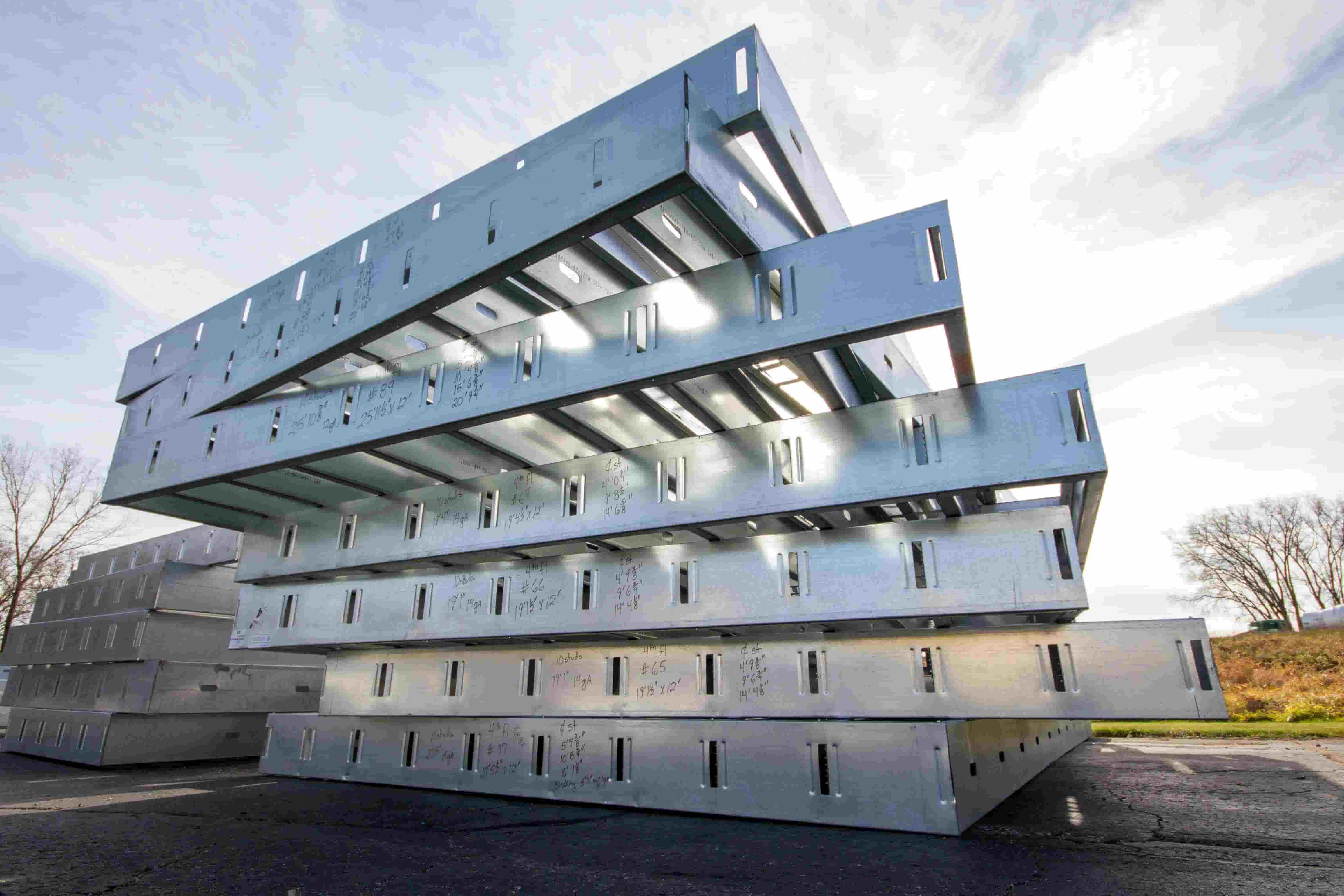
Prefabricated wall panels are revolutionizing the construction industry, offering a sustainable and efficient solution for building projects. These panels are manufactured in a factory, away from the construction site, and then transported and assembled on-site. With their numerous advantages, prefab wall panels are shaping the future of sustainable construction.
One of the key benefits of prefab wall panels is their positive impact on the environment. The manufacturing process of these panels generates less waste compared to traditional construction methods. Additionally, the materials used in prefab wall panels are often sourced from sustainable and renewable sources, such as engineered wood or recycled steel. This reduces the ecological footprint of the construction industry and promotes a more sustainable approach to building.
Furthermore, prefab wall panels offer improved energy efficiency. The panels are designed with insulation built in, ensuring optimal thermal performance. This results in reduced energy consumption and lower heating and cooling costs for the building. By reducing energy demand, prefab wall panels contribute to a more sustainable and energy-efficient built environment.
Prefabricated wall panels are also time-efficient, allowing for faster construction processes. The panels are manufactured in a controlled factory setting, which eliminates delays caused by adverse weather conditions. This means that construction projects can progress more rapidly, reducing the overall project timeline. Shorter construction periods lead to less disruption to the surrounding environment and communities, making prefab wall panels an ideal solution for urban development.
Another advantage of prefab wall panels is their high quality and consistency. Being manufactured in a factory setting under strict quality control measures ensures that the panels are of superior quality. This results in a more durable and long-lasting building structure. Additionally, prefab wall panels are designed to be easily customizable, allowing for flexibility in design and meeting specific project requirements.
In addition to their environmental and practical advantages, prefab wall panels also offer cost savings. The controlled manufacturing process reduces material waste, minimizing costs associated with material purchase and disposal. Moreover, the time-efficient nature of prefab wall panel construction translates into lower labor costs. Overall, prefab wall panels provide a cost-effective solution for construction projects while maintaining high quality standards.
The future of sustainable construction heavily relies on the adoption of innovative technologies and practices. Prefabricated wall panels are at the forefront of this movement, offering a sustainable and efficient alternative to traditional construction methods. As the industry continues to embrace sustainability, prefab wall panels will likely become the norm rather than the exception.
However, it is important to consider the challenges that may arise with the increased use of prefab wall panels. Transportation costs and logistical challenges associated with moving large panels to the construction site can be a concern. Additionally, the initial investment required for setting up a prefab wall panel manufacturing facility may deter some construction companies.
Despite these challenges, the benefits of prefab wall panels for sustainable construction outweigh the drawbacks. Their positive impact on the environment, improved energy efficiency, time-efficiency, high quality, and cost savings make them the future of sustainable construction. With ongoing advancements in technology and increased industry adoption, prefab wall panels will continue to revolutionize the construction industry and contribute to a more sustainable built environment.